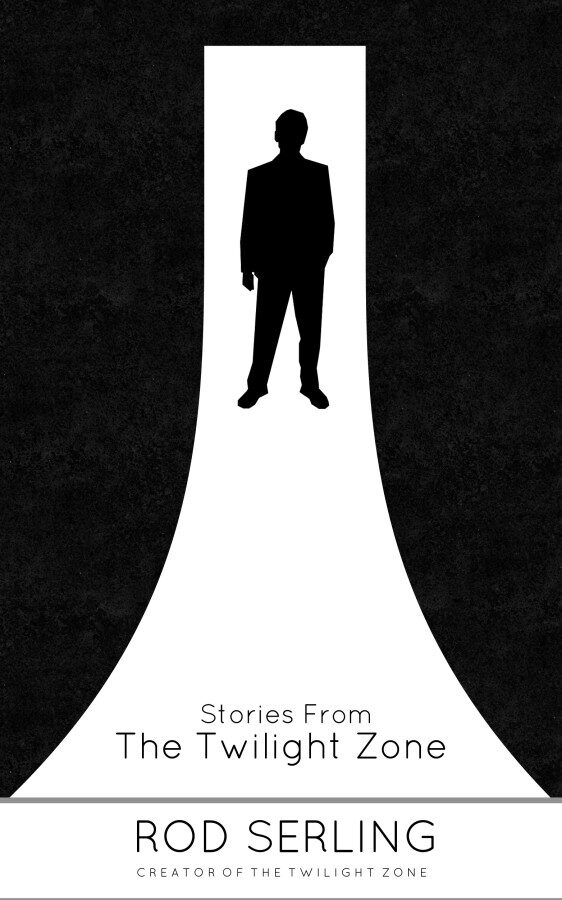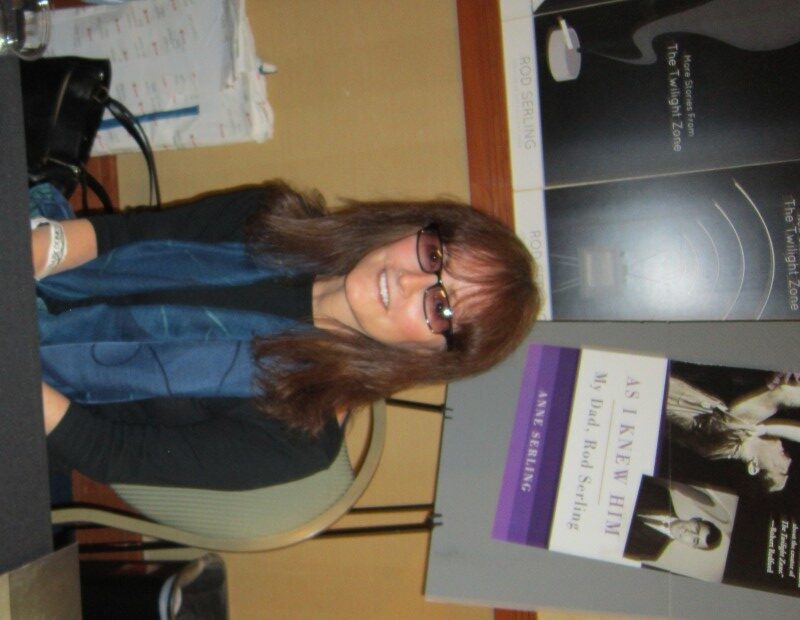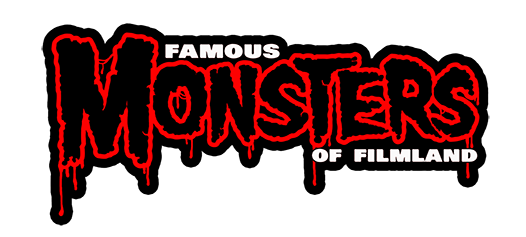Whether we were on Mars, in a time machine, wandering a realm, or raising the dead, Rod Serling‘s (THE TWILIGHT ZONE) messages on morals and social justice maneuvered their way into our homes, our hearts, our minds, and our conscience via the vessels of sci-fi and fantasy. Yet more admirable than Serling’s artistry and convictions was his love for his family, extolling the very same warmth and compassion that many of us felt from his stories and films onto his wife and children. And for his youngest daughter, Anne Serling, a unique father/daughter bond was forged between them, as timeless as infinity.
Endowed with both her father’s passion for writing and social concerns, Anne Serling is an accomplished poet, novelist, short story writer, and author of AS I KNEW HIM, an honest and personal biographical memoir of her mentor, “best buddy”, and dad, Rod Serling. Since the publication of her book, Anne has been inundated by the many people sharing personal stories about meeting her father, how he influenced them in some way or to become writers themselves, and how much they miss him.
She was gracious enough to share some of her stories about her dad as well.
Famous Monsters. Let’s start by getting to know Anne Serling a little more. Was it your father’s desire that his little girl follow in his footsteps as a writer?
Anne Serling. I don’t know how strongly my dad felt about me becoming a writer. I always loved to write, and wrote poetry from an early age. I always showed my father my writing. If he liked what I’d written, he would make a big show of it and talk about it a lot. Conversely, I knew if it wasn’t a great piece as he would declare it “interesting”.
FM. You seem to have fulfilled certain roles that your dad had once set out for. Where he had once wanted to be a children’s educator, you became one. Where he once attempted poetry (what your mother, Carol, humorously called “some very bad poetry”), you’ve achieved status as a poet. Was writing novels, which you are now doing, also something your father had once considered?
AS. I’ve actually never compared those parallel paths! My father did want to write novels and, in fact, was working on one before he died, but I never found more information on that.
FM. What does your personal writing regimen consist of? Are you an early riser like your father was, doing most of your work before noon? Do you have a specific way of forming a story or poem, perhaps borrowing techniques from your dad and/or other great writers?
AS. I get up by seven, as I find I do most of my best writing in the morning. I try to go for a run before noon, if it’s not too cold! It’s a time when I run plots, scenarios and characters through my head. I will revisit the writing again many times throughout the day.
I have always read my work aloud, and recently learned that my dad did that too—even before he used a Dictaphone. I loved learning that, and knowing we had that in common. He once said, “Saying a line through a machine is quite a valid test for the validity of what you’re saying.”

FM. Some years ago, you adapted two of your father’s TWILIGHT ZONE teleplays into short stories—”One for the Angels” and “The Changing of the Guard”—for Twilight Zone magazine. What was it that inspired you to write these particular pieces?
AS. I liked the episodes and connected with them both. “One For The Angels” is such a sweet story about a salesman who wants to make one last great pitch before he dies. Ed Wynn was so great in that episode. “The Changing of The Guard” is a beautiful piece. My dad was moved by the words of Horace Mann, the first president of Antioch College (where my dad attended): “Be ashamed to die until you have won some victory for humanity.” He used that quote in the episode. It is the story of a professor (Donald Pleasence) at a boy’s school being forced to retire, convinced that he has accomplished nothing in his lifetime and will quickly be forgotten. Thus, he resolves to commit suicide; but as he enters his classroom, he finds the ghosts of former students who tell him that the lessons from his teaching are what inspired each of them to their individual acts of heroism, courage, and self-sacrifice. When the ghosts depart, the professor realizes Mann’s words do apply to him, and that he can retire; that he has left some mark.
FM. To say your father’s work evoked social conscience and “a primary concern for the human condition,” as writer Marc Scott Zicree put it, would be a major understatement. What do you suppose were the seeds that planted your father’s desire to challenge society’s ethics and values? Something in his childhood, perhaps? His upbringing? His experience in WWII?
AS. All of the above, I think. My dad felt that prejudice was “our greatest evil.” In high school, he was black-balled from a Jewish fraternity for dating non-Jewish girls. Interesting, that his first glimpse of prejudice would come from his own people! The war definitely had, as with so many others, a huge and traumatizing impact on him. Originally he was going to major in physical education, but as he said, “The war changed all that.” He said he had to write, “to get it off my chest, out of my gut.” So he changed his major to language and literature. He felt that things needed to be addressed and that “radio, television and film ought to be vehicles of social criticism,” and that “it is the writer’s role to menace the public’s conscience.”
FM. One of the things I admired about your dad was his consistent use of literature and a theoretical approach to tell rich, deep, and meaningful stories—regardless if they were dramas in Playhouse 90 or about aliens landing on Earth. I can imagine Hemingway and Lovecraft and other literary greats adorning your home while you were growing up. What were some of your father’s best “go-to” sources that you recall cluttering his writing room?
AS. I know he liked the authors you mentioned. As a kid, he read Amazing Stories, Astounding Stories, Weird Tales—the pulps. Also, Edgar Allan Poe and Norman Corwin. Our house was always filled with books—my dad was always interested in what others wrote.
FM. What was it like being the only kid in school whose dad would be seen in over eighteen million homes that night?
AS. Well, my best friend’s father was also a writer, so it just seemed the norm. I knew from an early age that my dad was a writer, but I never knew specifically what he was writing until a mean boy on the playground asked me one day if I was “something out of The Twilight Zone” and “where does your dad get all his ideas—hanging from the ceiling?” I went home and asked my dad what he’d meant, and my father told me what his series was called and explained that it was sometimes a little scary, and most of the episodes were too old for me.
If my friends were wary about meeting my dad for the first time, that eventually waned because my dad was so funny and warm. Moments in his company and they felt completely at ease. In my book, I shared something a friend of mine wrote when she went to dinner with my dad and I for the first time: “Anne told me over and over that her dad was great, and I believed her. I also believed that he was deep, dark, and scary, and that maybe I should let them go by themselves…”
FM. Was your dad protective of you during your teen years? Did he ever give prospective boyfriends a “screen test”?
AS. My dad was funny. He would drill boyfriends about their parents, if their dads had been in the war, how old they were, what they did, etc. But he never did this in an off-putting or obnoxious way. My friends adored him.
However, there was one time when some kids drove down the road to our cottage on motorcycles to see my sister, and my dad was not happy. They were loud and had frightened our dogs, and my dad was furious. So angry, in fact, that he couldn’t articulate what he was trying to say. He just pointed his finger and nothing, no words, would come out. My mother had to step in and say, “What my husband is trying to say is that you’re not welcomed here.”
FM. Do you have a favorite TWILIGHT ZONE episode? Least favorite?
AS. I never watched much of THE TWILIGHT ZONE while my dad was alive. It wasn’t until after he died that I really started to watch, and initially that was more to see him than the actual show. One of the most poignant moments happened, actually, when I saw “In Praise of Pip” for the first time and realized that my dad had used dialogue similar to a routine that he and I did. “Who’s your best buddy?” It was quite a moment. I love “Walking Distance” and “A Stop at Willoughby”. Like my dad, I have a longing to go back in time. “Death’s Head Revisited” is a powerful, extraordinary episode. Least favorite would be the comedies. Though I adore Carol Burnet, I didn’t think the episode “Cavander is Coming” was great. My dad said that, too, though not because of her! He loved Carol Burnett and was friends with her.
FM. From your perspective, what were your dad’s reactions to NIGHT GALLERY, his transition from sci-fi/fantasy to horror/macabre?
AS. Initially, my dad had high hopes for NIGHT GALLERY, and there were some wonderful episodes. “They’re Tearing Down Tim Riley’s Bar” was one which my dad had special feelings for, and which earned him an Emmy nomination. It’s a nostalgic, biographical piece, similar to the TWILIGHT ZONE episode “Walking Distance”. Both truly represent my father’s writing at its absolute best, and both evoke the theme of going backwards and going home again.
Ultimately, my dad was disappointed with the series and the producer, Jack Laird. I remember my father saying the man’s name through gritted teeth. Laird, apparently, had very different ideas about the show, and ultimately my dad said, “I wanted a series with distinction, with episodes that said something; I have no interest in a series which is purely and uniquely suspenseful but totally uncommentative on anything.”
FM. Do you think a NIGHT GALLERY movie or television reboot would ever work?
AS. Hard to say. How often are reboots successful?
FM. What do you think would be your father’s main concern with television today?
AS. Reality television would have incensed him: Honey Boo Boo, the Kardashians. Stupid television that presumes its audience is of zero IQ. The shows he would have loved: Bill Mayer, NEWSROOM, BREAKING BAD—intelligent, thought-provoking television. This new show RESURRECTION looks like one he definitely would have liked.
FM. Your father, a public figure and a catalyst for social change, must have received scores of letters requesting endorsements for causes and institutions. How did he handle this?
AS. He did receive requests for endorsements and initially he did some that he was tremendously conflicted about. It irked him, what he could make from a sixty second commercial versus what would have taken him six months to earn from writing.
FM. Like many other outspoken social activists who “ruffled some feathers,” your dad must have received a lot of “not-so-nice” mail as well.
AS. He never worried about ruffling feathers. He did, apparently, receive a lot of not-so-nice mail. If it was intelligent, he tried to answer it seriously and answered almost all of the mail he received. He told a friend, “If it was from a nut job, I was tempted to return it with a note saying, ‘Someone is sending out crank mail under your name and I thought you should know.’”
FM. What sort of social issues would your father grapple with today?
AS. What would have disheartened and saddened my dad greatly is that prejudice is still such a predominate force in our country. The Tea Party, this latest law proposed in Arizona to allow gays (or anyone that doesn’t “fit” into a certain religious idealism) to be ostracized; the school shootings. It would have broken my father’s heart.
In the interview I mentioned previously, he also said—and I think this would hold true today about current politicians—“I’d love to be able to write an in-depth piece of what causes men like Nixon and Haldeman and Ehrlichman and all the rest of them not only to run, but what causes us to vote for them.”
FM. Do you foresee a feature film made about your father’s extraordinary life?
AS. It has been suggested that I use my memoir as a vehicle for a feature film, yes.

Interview and photo by Michael Lizarraga.

